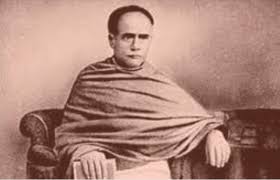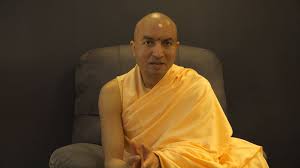Ishwar Chandra Bandopadhyay CIE, popularly recognized as Ishwar Chandra Vidya Sagar, was a prominent Indian educator and social reformer who left an indelible mark on the 19th century. Born on September 26, 1820, he dedicated his life to simplifying and modernizing Bengali prose, revolutionizing the Bengali alphabet and type, and championing various social causes.
One of Vidya Sagar’s most enduring legacies was his relentless advocacy for Hindu widow remarriage. In a time when this practice was vehemently opposed and considered a violation of Hindu customs, he courageously petitioned the Legislative Council. Despite facing severe opposition, including a counter-petition led by Radhakanta Deb and the Dharma Sabha with nearly four times as many signatures, Vidya Sagar’s persistence prevailed. Lord Dalhousie personally sanctioned the bill, leading to the enactment of the Hindu Widows’ Remarriage Act in 1856.
Additionally, Vidya Sagar vehemently opposed child marriage, and his tireless efforts contributed to the passing of the Age of Consent Act in 1891. This legislation raised the minimum age for consummation of marriage to 12 years, protecting young girls from the harrowing consequences of early marriages.
In the realm of education and journalism, Vidya Sagar’s impact was equally profound. On November 15, 1858, the weekly newspaper “Somprakash” was inaugurated by Dwarakanath Vidyabhusan, a professor at Calcutta’s Sanskrit College. The inception of this newspaper was initially conceived by Ishwar Chandra Vidya Sagar himself, and he continued to provide valuable guidance to Dwarakanath on editorial matters. Furthermore, Vidya Sagar played a pivotal role as the secretary of the Hindu Female School, later known as Bethune Female School.
Vidya Sagar’s academic prowess was evident during his undergraduate studies in Sanskrit and philosophy at the Sanskrit College in Calcutta. His exceptional dedication and knowledge led to the conferral of the honorific title “Vidyasagar,” which translates to “Ocean of Knowledge” in Sanskrit. This title aptly encapsulated his profound wisdom and contributions to education and social reform.
In addition to his advocacy for widow remarriage and opposition to child marriage, Vidya Sagar’s work extended to various other social issues. He championed women’s education and played a pivotal role in the establishment of schools for girls. His efforts in simplifying and modernizing Bengali prose and script were instrumental in making education more accessible to a wider audience.
Vidya Sagar’s impact on Bengali literature and language was immense. He sought to remove the complexities and archaic elements from Bengali prose, making it more comprehensible to the masses. Additionally, he worked tirelessly to rationalize and simplify the Bengali alphabet and type, which had remained unchanged since the initial cutting of the wooden Bengali type by Charles Wilkins and Panchanan Karmakar in 1780.
In conclusion, Ishwar Chandra Vidya Sagar was a multifaceted luminary of his time, leaving an indomitable legacy as an educator, social reformer, journalist, and champion of women’s rights. His unwavering dedication to the betterment of society, coupled with his exceptional knowledge and wisdom, earned him the enduring title of “Vidyasagar” or “Ocean of Knowledge.” His contributions continue to inspire and guide generations in the pursuit of knowledge and social progress.
Some Images of Ishwar Chandra Vidyasagar:



More story in Hindi to read:
Moral stories in Hindi for class


